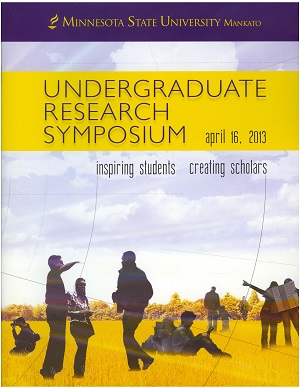Emotional Abusers and Their Effects on Custodial Arrangements Post-Divorce
Location
CSU 202
Start Date
16-4-2013 1:15 PM
End Date
16-4-2013 2:15 PM
Student's Major
Gender and Women's Studies
Student's College
Social and Behavioral Sciences
Mentor's Name
Shannon Miller
Mentor's Department
Gender and Women's Studies
Mentor's College
Social and Behavioral Sciences
Description
Women often believe the misconception that once a divorce is finalized, the emotional abuse will stop. Society often does not realize or acknowledge the extreme difficulty that arises in negotiating some kind of a parenting partnership with an emotional abuser even after divorce. In this research study, I conducted semi-structured in-depth interviews with women who were in the process of navigating a custodial relationship or had negotiated a custodial relationship with their emotional abuser post- divorce. Feminist research methods were applied to explore their individual experiences, allowing for their stories to be told without restriction or feelings of being silenced. Preliminary findings suggest that participants shared several experiences; such as, continued emotional abuse post-divorce, a sense of silencing by the abuser and/or society, feeling alone in their struggles, frustration with the family court system, and finally, having to resort to different strategies to ensure their own safety. These findings have implications for understanding women’s experience after divorce, as emotional abuse may continue. This means society must acknowledge its existence within the family court system. It is credible and worthy of the effort required to find new ways in which to ensure safer co-parenting practices, as well as to establish programs that validate a victim of emotional abuse’s experience within our society.
Emotional Abusers and Their Effects on Custodial Arrangements Post-Divorce
CSU 202
Women often believe the misconception that once a divorce is finalized, the emotional abuse will stop. Society often does not realize or acknowledge the extreme difficulty that arises in negotiating some kind of a parenting partnership with an emotional abuser even after divorce. In this research study, I conducted semi-structured in-depth interviews with women who were in the process of navigating a custodial relationship or had negotiated a custodial relationship with their emotional abuser post- divorce. Feminist research methods were applied to explore their individual experiences, allowing for their stories to be told without restriction or feelings of being silenced. Preliminary findings suggest that participants shared several experiences; such as, continued emotional abuse post-divorce, a sense of silencing by the abuser and/or society, feeling alone in their struggles, frustration with the family court system, and finally, having to resort to different strategies to ensure their own safety. These findings have implications for understanding women’s experience after divorce, as emotional abuse may continue. This means society must acknowledge its existence within the family court system. It is credible and worthy of the effort required to find new ways in which to ensure safer co-parenting practices, as well as to establish programs that validate a victim of emotional abuse’s experience within our society.
Recommended Citation
Sampson, Heidi. "Emotional Abusers and Their Effects on Custodial Arrangements Post-Divorce." Undergraduate Research Symposium, Mankato, MN, April 16, 2013.
https://cornerstone.lib.mnsu.edu/urs/2013/oral-session-09/2




